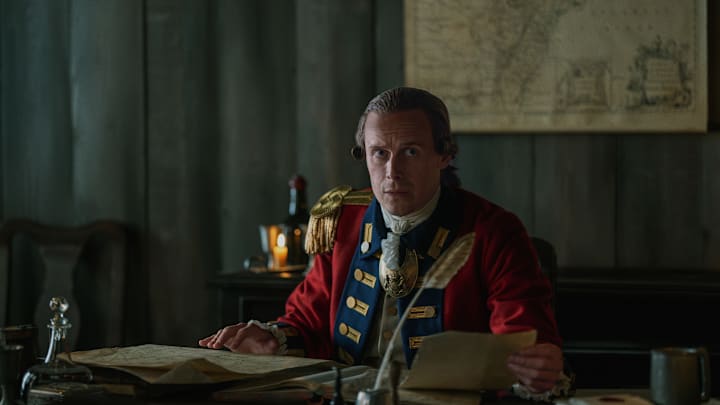There are a lot of questions about Captain Richardson in the Outlander books. Go Tell the Bees That I Am Gone certainly answered a few questions about whether we could trust him or not. However, it also left us with a lot of new questions.
It turns out that he’s a time traveler. Bree and Roger think that he’s from their time and that he was an architect at Lallybroch in the 1970s and 1980s. However, they think he’s had plastic surgery and that he’s after the Jacobite gold.
We’ve also found out that he wants to abolish slavery sooner than the American Civil War. That leads to a big question. Why would he come to the time of the Revolutionary War when slavery started much earlier than this? Why not go to the 1600s?
Captain Richardson wouldn’t be in the Outlander books if it was earlier
Okay, so there is an obvious answer. We wouldn’t have Captain Richardson in the books if he chose to go to 1619, which would be a better time to stop the colonies from growing slavery to what it would become. Claire and Jamie aren’t in that time period, and we have no reason to go that far back in time.
So, it has to be the Revolutionary War.
I also think going too far back in time wouldn’t help matters. It’s like Otter Tooth going too far back to get the Native Americans on his side to help prevent what happened to them. On his own, Richardson would know that he couldn’t convince a lot of people not to do something.
The Revolutionary War is closer to when Britain abolished slavery
Claire has already shared that Britain abolishes slavery before the Americans. That’s something she told Jamie in Outlander Season 3 when in Jamaica. The Slavery Abolition Act was passed in 1834. However, the fight to end slavery started sooner, with the slave trade coming to an end in 1807. It wasn’t until after the Civil War that America ended slavery in the 1860s.
We’re into the late 1770s in Outlander right now. The Revolutionary War ends in the 1780s. It makes sense then that Richardson would time his travel with something close to when Britain ends slavery. If the British win the Revolutionary War, it would mean the slave trade would be abolished sooner in America as well as in Britain.
At least, that seems to be his thinking. It does make more sense than traveling back to 1619, but there’s no guarantee that it would actually bring an end to slavery sooner than it does happen in America in real life.
